Misbehaviour a celebration of choice
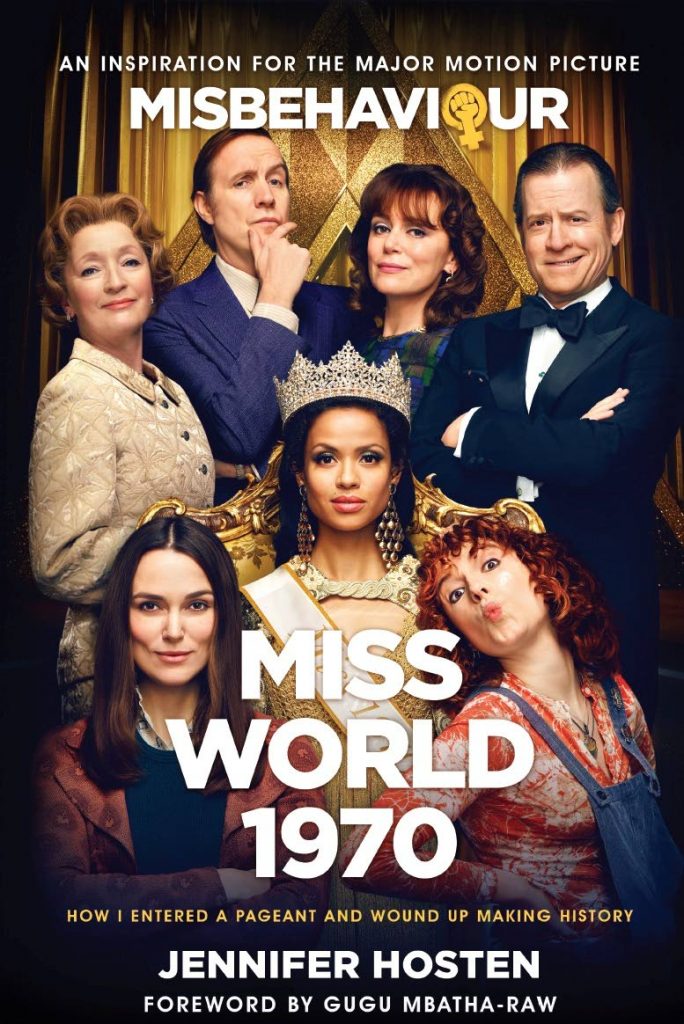
GRENADIAN Jennifer Hosten, the first Miss World of colour, wants Caribbean people to view Misbehaviour, the biopic based on her memoirs online.
Hosten who now lives in Canada spoke with Newsday via Google Hangouts on March 25, and said she wanted to know what people in the Caribbean thought of the film.
Misbehaviour is a dramatic comedy about Miss World 1970 starring Keira Knightley and Gugu Mbatha-Raw.
Miss World 1970 was a historic pageant in many ways. Racially-segregated South Africa sent two participants to the competition for the first time – Miss South Africa, Jillian Jessup, a white woman, and Miss Africa South, Pearl Gladys Jansen, a black woman.
Miss Africa South placed second and Hosten, Miss Grenada, was crowned queen.
But the most dramatic moment of the globally publicised event, held in the Royal Albert Hall, London, was when women from the feminist liberation movement stormed the stage, hurling flour and vegetables at host Bob Hope.
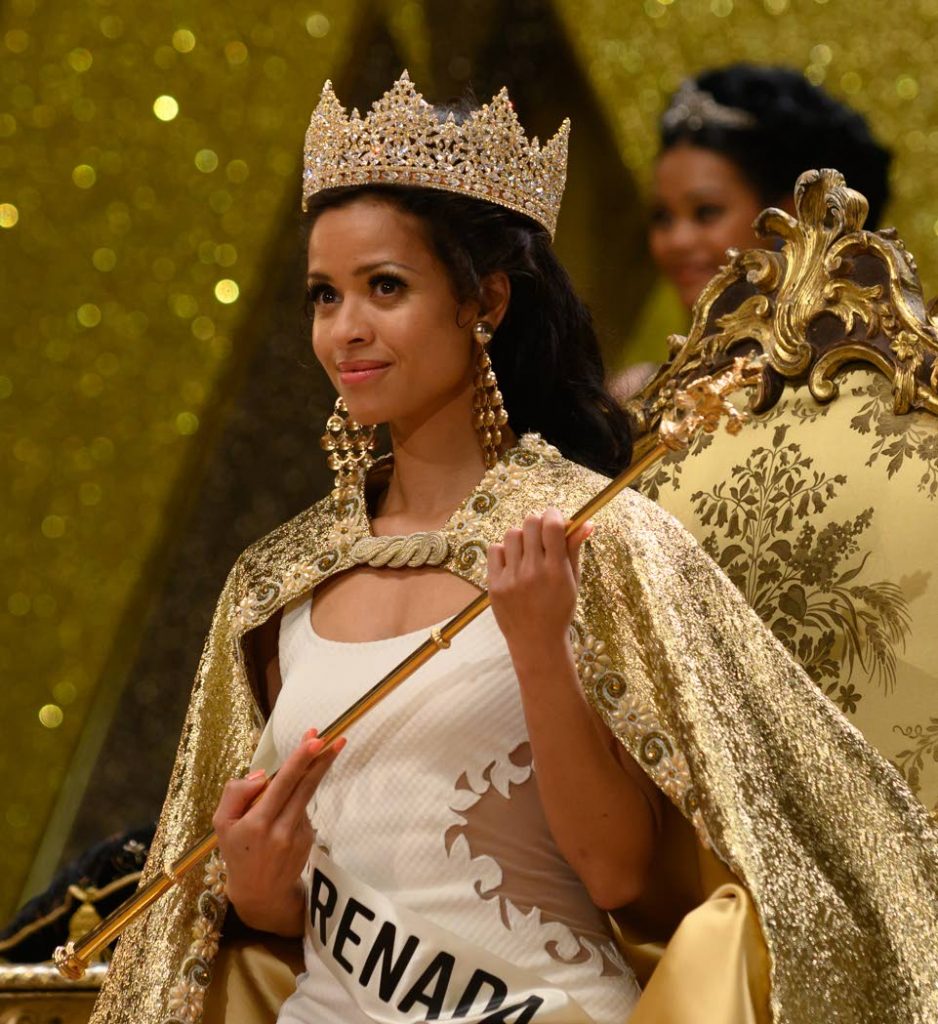
Misbehaviour premiered in London on March 9. On March 11, the coronavirus was declared a global pandemic. Subsequently, cinemas around the globe closed. The US release date is yet to be announced.
Misbehaviour was released only to UK streaming platforms on April 15, and people in the Caribbean cannot access it there. The Caribbean is on lockdown under strict stay-at-home measures, which means people have time to watch movies.
“If it is (streamed online), I think it'll be greatly popular…The newspapers in the UK gave it an overall rating of four out of five. It would be interesting to hear what people in the Caribbean – when they eventually see it – think.”
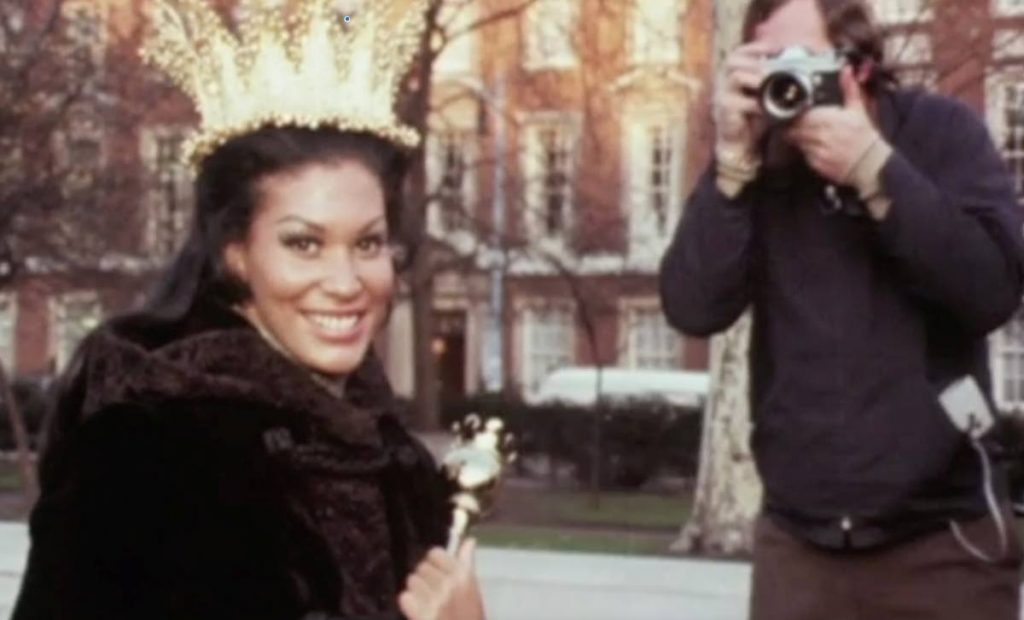
Hosten recalled that night she won Miss World. The feminists were enraged by the pageant’s objectification of the female body and offended by the sexist and demeaning jokes Hope made.
“We were backstage, behind the curtains,” Hosten said. “We heard noise. We heard the football rattle and the popping. I peeked through the curtain and we could see what was happening.”
Throughout the night, Hope, a comedian who frequently hosted Miss World, was making sexist jokes on stage.
“I don’t want you to think I’m a dirty old man because I never give women a second thought. My first thought covers everything,” was an example of his onstage humour.
Feminist activists jumped up and stormed the stage yelling: “We’re not beautiful. We’re not ugly. We’re angry.”
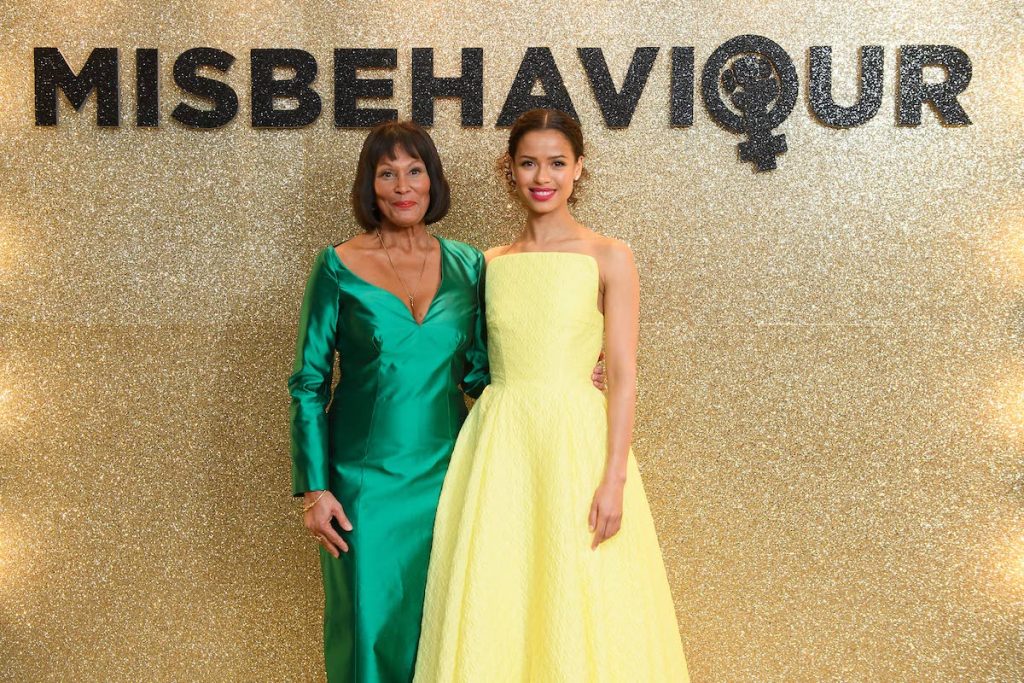
Hosten thought the show would be stopped, but within 15 minutes Hope returned to the stage, the finalists were announced, and she was crowned Miss World.
“This was incredible, because the contest was being shown live on the BBC. At that point, the cameraman and organisers were in great confusion. It made a lot of news all around the world and it just strikes me that it was quite a moment in time in history.”
The feminists said they were not targeting the contestants but making a stand against female objectification.
“They had some idea that the show would provide an opportunity for the demonstration in the Royal Albert Hall. But Bob Hope’s comedy lines were really in poor taste. They exacerbated the whole thing.”
After touring with Hope to entertain soldiers in Vietnam during the war, Hosten learned he did not write his own jokes.
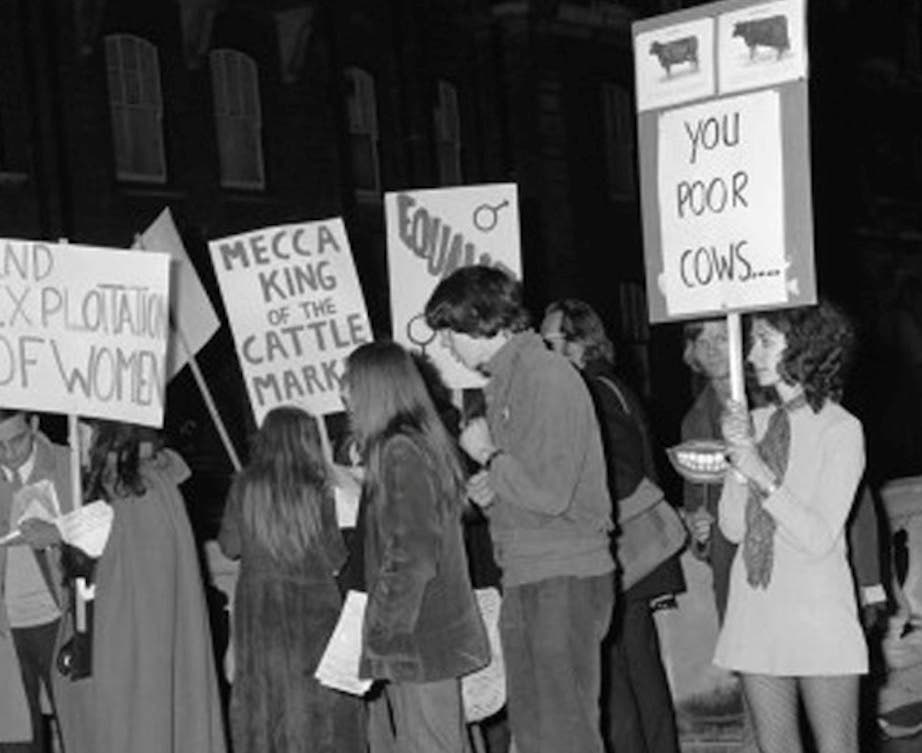
“He never wrote his own material. The material that he spoke on stage was not in good taste. I didn't appreciate the humour, but I came later on to appreciate the person and made that clear distinction…
“When you look at it back in history you realise that in that particular time, that kind of humour was tolerated. Now it is considered politically incorrect.”
It was by chance that Hosten became Miss Grenada. She was a 23-year-old flight attendant for British West Indies Airways (BWIA, the forerunner of Caribbean Airlines) when she met Miss Guyana, Jennifer Wong, on a flight to Trinidad. Wong was on her way to New York to shop for the pageant. Wong took a photo with Hosten which made it into the newspapers, and she was asked to compete in the Miss Grenada pageant.
Hosten won and became the first-ever Miss Grenada to compete for Miss World.
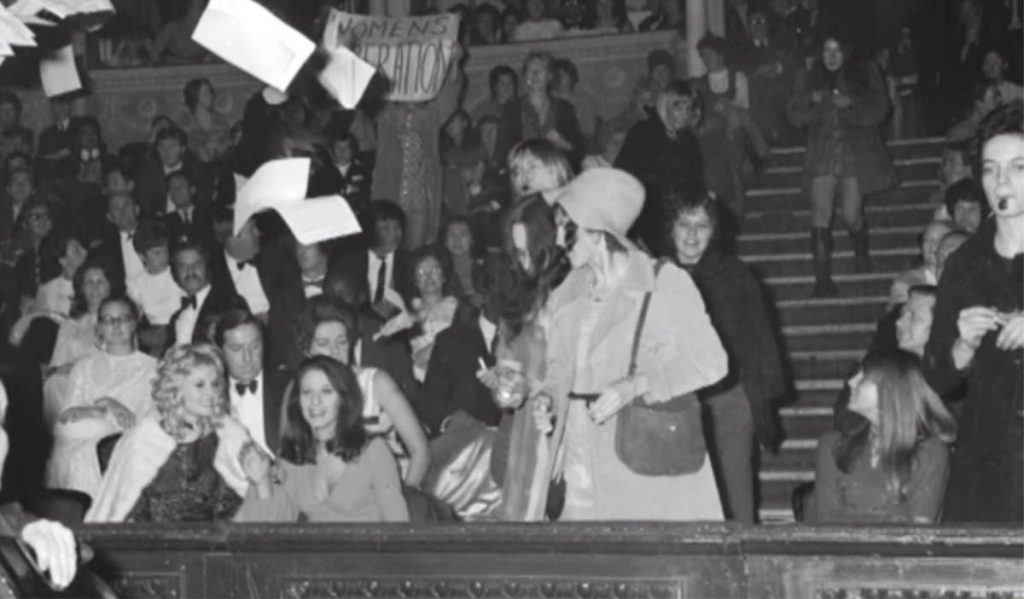
“When we arrived in London, I didn't realise just how big the Miss World contest was. In 1970 it was extremely large. It was the event that everyone watched on television, not just in the UK but throughout the world.”
Miss World was one of the most-watched events on TV in 1970. People used to bet on the competition, making it big business for bookies. Hosten knew she was the underdog. She said the media favoured the US, UK and Scandinavian competitors. Marjorie Christel Johansson, Miss Sweden, was favoured to win.
“They did not expect anyone from – certainly not from one of the smallest countries in – the Caribbean to be a winner. They also didn't look at the women of colour with any expectation of us winning.
“Just to get the media attention was an obstacle that we had to overcome, and it made many of us become more and more determined that we would make a mark.”
Race and gender are intersecting themes in Misbehaviour. The Black Power movement was rising around the world. South Africa, controversially, had had two contestants.
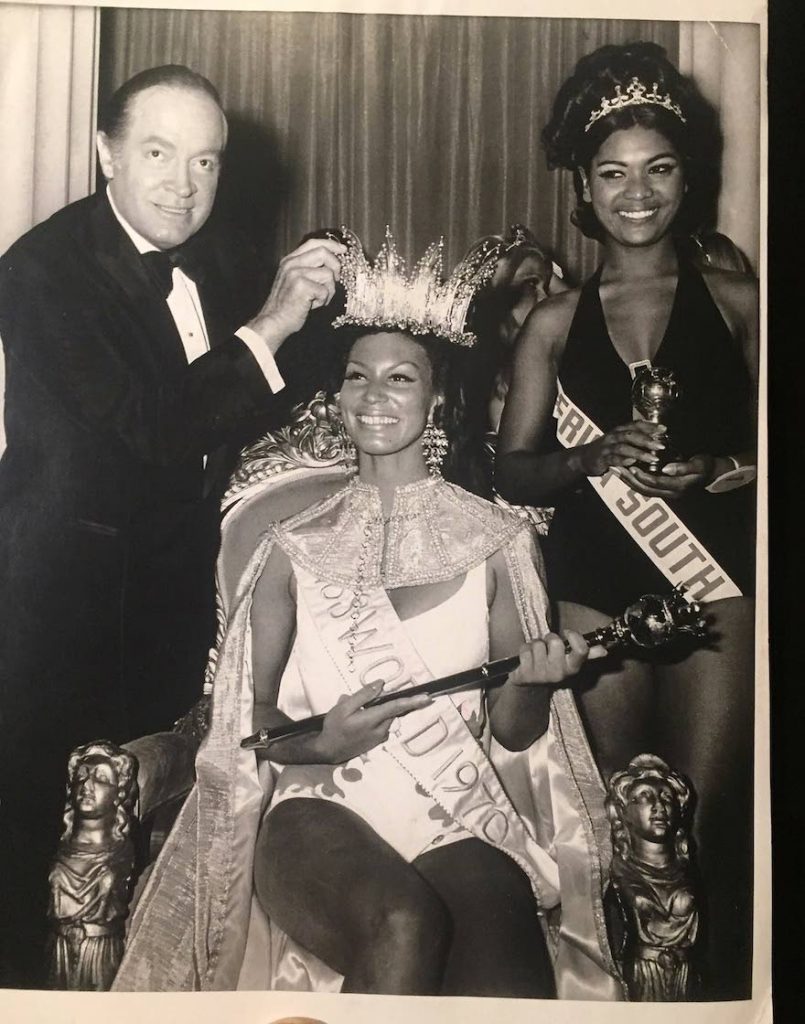
“Miss Africa South was the woman of colour who was sent as a token representative, but the fact that she and I placed – I won and she came second – was also something that was significant, because at the time there were demonstrations against the apartheid regime in her country.”
Though feminists were protesting because Miss World perpetuated the idea that a woman’s worth was her beauty, Misbehaviour discusses the opportunity and visibility the women of colour had while competing and the platform it provided for women to launch careers.
“You had issues of race, gender and visibility all taking a place…Looking back at it, I guess I ticked all three boxes.”
To Hosten, Misbehaviour is a celebration of choice and opportunity for women to be whoever they want to be, not being limited by race, gender or social expectations.
“Inclusion is an important thing because it gives you the chance to participate and to show what you can actually do. I think it showed that women could win anywhere.
“Women of colour had had a very important part to play, but we need to be given an opportunity to be able to show what we can do. I think that struggle continues."
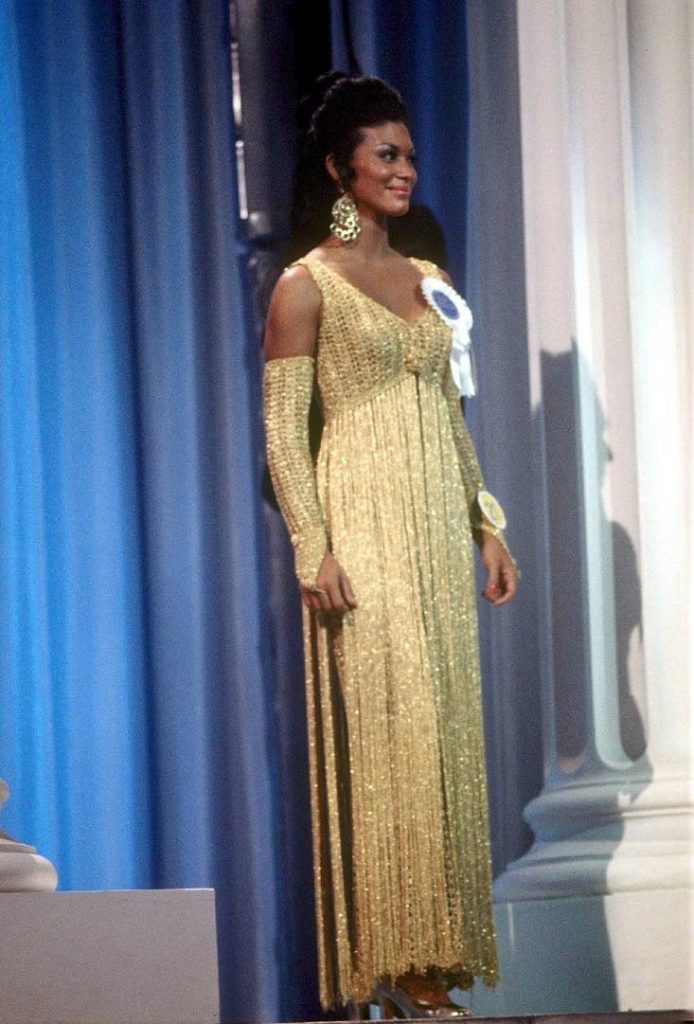
In Misbehaviour, there is a scene between Hosten’s character, played by Mbatha-Raw, and feminist Sally Alexander, played by Knightley. Alexander tells Hosten she’s not mad at the contestants, and Hosten retorts, “I look forward to having your opportunities in life.”
Opportunity and representation for women of colour at that time were limited.
“In my time there were fewer opportunities. Because of the glamour of the Miss World in 1970, it was seen as an opportunity.
"I do not think it's the only way to have gone. Many of my friends and school chums didn't choose to be of Miss World. It was just a question of choice and that opportunity.”
Hosten leveraged the platform to help launch her career. After Miss World, she studied international relations. She later became the High Commissioner to Canada for Grenada under the Maurice Bishop government and was technical adviser on trade for the Organisation of Eastern Caribbean States.
“I think women have many more choices today than we had in the 1970s. Women do not have to go into beauty contests. It is something that is very much an issue of choice. Women can be doctors, lawyers, engineers, scientists and more…If they happen to choose or want to choose the beauty contest route that hopefully will lead them to really where they want to go.”
In the 50 years since she competed, she’s seen a transformation in the competition, saying it focuses less on a woman’s appearance but skill and character.
“I congratulate the organisers of beauty contests for becoming more progressive in their organisation…There is less emphasis on the objectivity of women wearing bathing suits and much more on issues of representation, and the fact that women can talk knowledgeably and represent their countries.”
Misbehaviour was inspired by Hosten’s memoir Beyond Miss World, which was published in 2008.
Twelve years later, she will release another, Miss World 1970: How I Entered a Pageant and Wound up Making History, on May 1. It can be found on Amazon.


Comments
"Misbehaviour a celebration of choice"